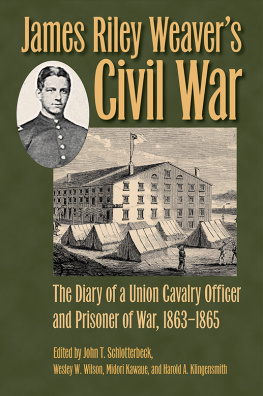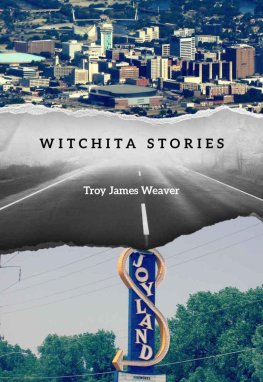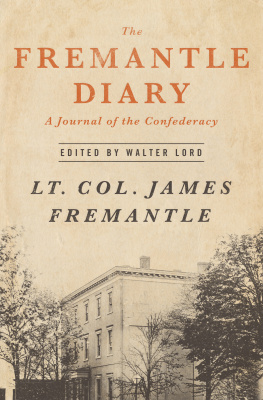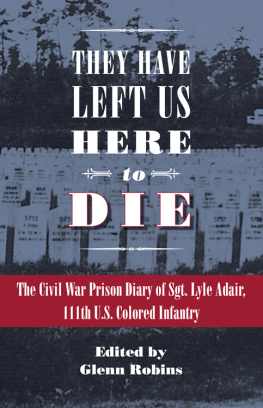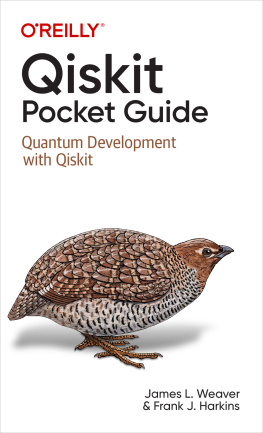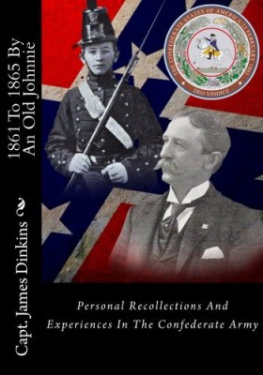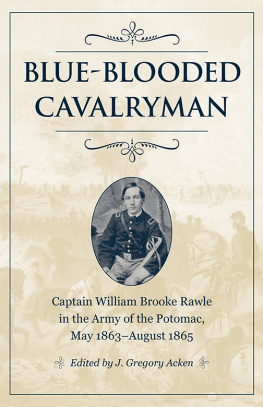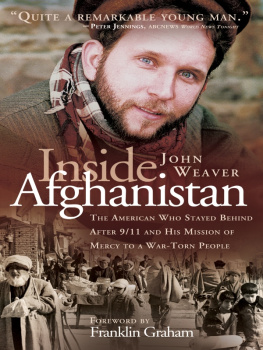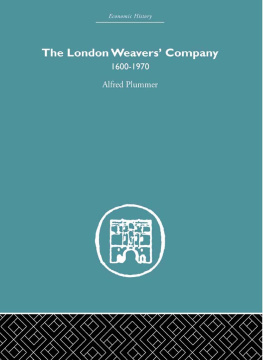James Riley Weavers
Civil War
The Diary of a Union Cavalry Officer and
Prisoner of War, 18631865
Edited by John T. Schlotterbeck, Wesley W. Wilson,
Midori Kawaue, and Harold A. Klingensmith

The Kent State University Press
Kent, Ohio
2019 by The Kent State University Press, Kent, Ohio 44242
All rights reserved
Library of Congress Catalog Number 2018038358
ISBN 978-1-60635-368-4
Manufactured in the United States of America
No part of this book may be used or reproduced, in any manner whatsoever,
without written permission from the Publisher, except in the case of short quotations
in critical reviews or articles.
Library of Congress Cataloging-in-Publication Data
Names: Weaver, James Riley, 1839-1920, author. | Schlotterbeck, John T., editor. | Wilson, Wesley (Wesley W.), editor. | Kawaue, Midori, editor. | Klingensmith, Harold A. (Tony), editor.
Title: James Riley Weavers Civil War : the diary of a Union cavalry officer and prisoner of war, 1863-1865 / edited by John T. Schlotterbeck, Wesley W. Wilson, Midori Kawaue, and Harold A. Klingensmith.
Description: Kent, Ohio : The Kent State University Press, [2019] | Includes bibliographical references and index.
Identifiers: LCCN 2018038358 | ISBN 9781606353684 (cloth)
Subjects: LCSH: Weaver, James Riley, 1839-1920--Diaries. | United States. Army. Pennsylvania Cavalry Regiment, 18th (1862-1865) | United States. Army. Cavalry--Officers--Diaries. | Soldiers--Pennsylvania--Diaries. | Pennsylvania--History--Civil War, 1861-1865--Personal narratives. | United States--History--Civil War, 1861-1865--Personal narratives. | Pennsylvania--History--Civil War, 1861-1865--Regimental histories. | United States--History--Civil War, 1861-1865--Regimental histories. | Prisoners of war--United States--Diaries. | United States--History--Civil War, 1861-1865--Prisoners and prisons.
Classification: LCC E527.6 18th W43 2019 | DDC 973.7/81--dc23
LC record available at https://lccn.loc.gov/2018038358
23 22 21 20 19 5 4 3 2 1
John Schlotterbeck: For my students at DePauw University and my family
Barbara, Jesse, Marian, Ava, and Alina
Wesley W. Wilson: For Elena
Midori Kawaue: For Tomiko Hattori
Anthony Klingensmith: For Pam
Contents
Editing James Riley Weavers diary has been a collaborative enterprise, and I especially thank my coeditors shared enthusiasm and individual talents for making this project possible. In January 2015, Tony Klingensmith, an independent scholar, sent Wes Wilson, the DePauw University archivist, a transcription of the text from the digitized diary pages Wes had posted on Flickr. The drafts surprise arrival encouraged us to dream of publishing the seven-hundred-page diary. That summer, Wes, Midori Kawaue, an undergraduate history major, and I received a student-faculty summer research grant from DePauw University to continue the editorial work. Midori corrected Tonys draft against the original and added our suggestions. Together we developed editorial guidelines. Midori continued revising the text in fall 2015, and she and I read scholarship on Civil War prisons and writings by prisoners. Her annotated bibliographies provided insights on each readings themes, reliability, and usefulness that were invaluable in writing the introductory material. Midoris meticulous work and her great cheer and spirit are an inspiration.
Wess immense knowledge about the history of DePauw University and the United Methodist Church and his personal connections, through Elena S. Wilson, to the Weaver family have been vital in understanding Weavers life. He collected additional Weaver material from individuals and archivists and selected and secured permissions for the illustrations. Tonys research on the 18th Pennsylvania Cavalry was indispensable in understanding military events and in identifying individuals Weaver mentioned in the diary. The two outside readers made many suggestions for revisions that significantly improved the final manuscript. The enthusiasm and professionalism of the staff at Kent State University Press made bringing Weavers diary to publication a pleasure. Colleagues at DePauw have been uniformly supportive of the project and several have contributed in special ways. My wife, Barbara Steinson, provided steadfast encouragement and careful comments on the introduction, prologue, epilogue, and chapter introductions that improved the prose and clarified themes. John Dittmer read the entire manuscript and offered a valuable perspective from someone whose expertise is outside the Civil War era. Yung-chen Chiang helped explain Weavers contributions as a teacher. Beth Wilkerson prepared the maps and patiently responded to our numerous revisions. Finally, we are grateful to the Faculty Development Committee and to Anne Harris, vice president of academic affairs, DePauw University, for their material support.
JOHN T. SCHLOTTERBECK
Many thanks to David H. Howard and Joanne Howard Kouris for their donation of the diary and supporting family material to the Archives and to John Schlotterbeck for taking an archival transcription project and bringing it to publication. Thanks also to Mary Graff Dove for her donations of Weaver family items and information about James Riley Weavers daughters and son-in-law. Fellow archivists provided invaluable research assistance, including Suzanne Williams at the Merrick Archives at Allegheny College and Frances Lyons at the General Commission on Archives and History, United Methodist Church. The staff at the Sandusky (Ohio) Public Library provided further assistance in locating Matern family information. Help in locating photographs was provided by Michael Kraus, curator of collections and historian, Soldiers and Sailors Memorial Hall and Museum; Marlea D. Leljedal, operations clerk, US Army Heritage and Education Center; and Jessica Eichlin, photographs manager, West Virginia, and Regional History Center, West Virginia University. Special thanks go to my wife, Elena S. Wilson (who is also James Riley Weavers cousin) for her valuable research assistance and discoveries, helpful insights, and enthusiastic support throughout the project.
WESLEY W. WILSON
As a Japanese international student, I would never have imagined being able to take part in such a large transcription project. I thank the Grew Bancroft Foundation, Hirotsugu Chuck Iikubo (DePauw 57), and the Rector Scholarship Program for providing me the opportunity to do firsthand research on the American Civil War. Their steadfast belief in investment in humanity made it possible for me to participate in this project. I am also grateful for the training from members of the DePauw History Department. I have been fortunate to have several mentors like Hope Sutherlin, John Schlotterbeck, David Gellman, and Nahyan Fancy. I am also overwhelmed by the kind support that my family has provided me. In 2015, I spent an unforgettable summer with Mindy and Jeff Peters, my host parents, who kindly opened their home for me to stay while I was editing the diary. This immersion in American family life has been a valuable experience for me to comprehend American life back in the nineteenth century. Yoshiki and Michiko Kawaue, my father and mother, have been lifelong supporters of my history work. My preoccupation with American history started with a historical novel that was gifted by them. I dedicate this book to them.

